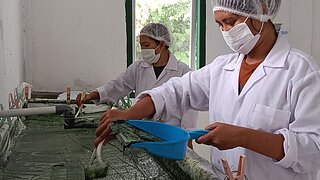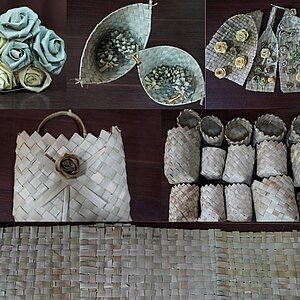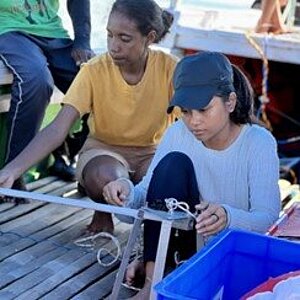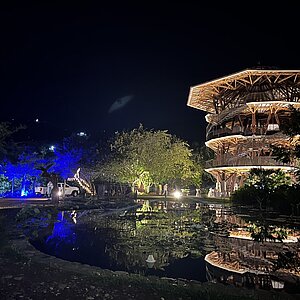Community-led spirulina farms set to boost seagrass and dugong conservation

Spirulina farms in Indonesia empower local communities and protect seagrass meadows, showcasing a sustainable model for biodiversity conservation.
In a major milestone for the IKI Seagrass Ecosystem Service Project, community-led spirulina production farms have been successfully established in Tarabitan and Yogyakarta, Indonesia. This initiative is part of a wider effort led by the CMS Office in Abu Dhabi under the Dugong Memorandum of Understanding (MOU) across six countries in the Asia region, with local partners YAPKEA and PT Niras in Indonesia. These innovative farms, managed entirely by local villagers with interim support from a community-based field coordinator, are creating sustainable sources of incomewhile playing a critical role in conserving seagrass meadows and protecting endangered dugongs.

Seagrass ecosystems are vital for the health of tropical fisheries, providing essential nursery areas for spawning and juvenile development. Their role in supporting marine biodiversity including vulnerable species such as dugongs and sustaining fish populations cannot be overstated. In addition, seagrasses are important carbon sinks. The impressive capacity for carbon storage highlights the immense potential of seagrass restoration in mitigating climate change, and underscores the urgent need to protect and restore these valuable underwater habitats.

The introduction of spirulina farming addresses the need for community involvement in conservation by providing a sustainable alternative to traditional fishing. Spirulina, a highly nutritious microalgae, is cultivated in self-contained, zero-nitrogen-leaching ponds, providing communities with diversification opportunities and complementing other income-generating activities, such as ecotourism. This approach not only supports local livelihoods but also helps to protectvital marine ecosystems that are increasingly threatened by climate change, pollution, and unsustainable fishing practices.

Women and members of the local community are at the forefront, taking charge of production, processing, and sales promotingeconomic empowerment and strengthening community ties to conservation efforts. This circular model not only creates jobs, but also aims to raise the profile of dugong as an iconic species that the community should be proud of and strive to protect.
Since the end of August 2024, significant quantities of spirulina have been produced, with current capacity equating to more than 4,000 daily portions per day. These will be sold across the country under the umbrella brand “Mermaid Spirulina”, strengthening the link between the superfood and dugong conservation. The main challenge ahead is to scale up marketing and sales within the Indonesian archipelago, with the possibility of expanding to international markets. To address this, the NGO partner YAPEKA is working closely with the communities, providing training and support in branding, marketing, and establishing links with universities and potential commercial partners. Emphasising the importance of local markets, the initiative is working to create a strong domestic demand for spirulina products, which will further support the sustainability of the farms and conservation efforts by providing a regular income stream.
These spirulina farms offer a practical solution for integrating conservation efforts with community development. This initiative aims to serve as a replicable model for sustainable conservation. It highlights the importance of local communities in achieving global climate and biodiversity targets, while also demonstrating that protecting seagrass meadows not only provides environmental benefits but also improves local livelihoods.
The initiative is based on the recognition that conservation efforts are most successful when they are rooted in community engagement. By empowering local people to ltake the lead, the IKI Seagrass Ecosystem Service Project is paving the way for a more sustainable future, where both nature and communities can thrive.
The link has been copied to the clipboard
Contact
IKI Office
Zukunft – Umwelt – Gesellschaft (ZUG) gGmbH
Stresemannstraße 69-71
10963 Berlin













